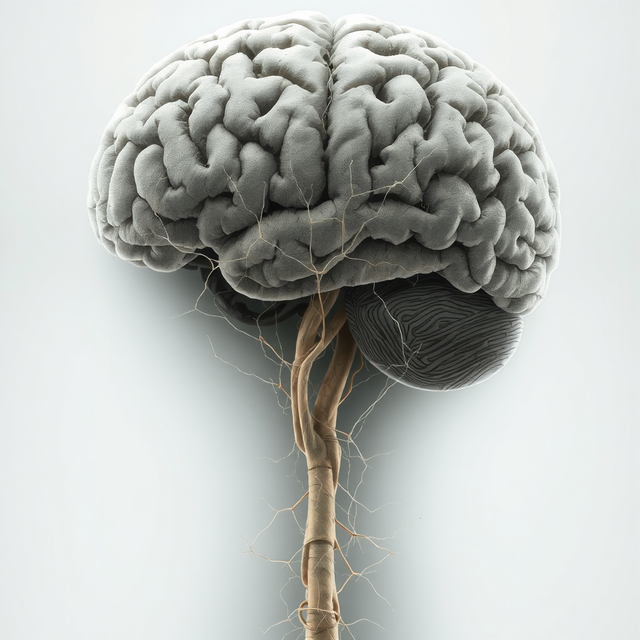Why Your Brain Deserves More Attention Than Your Mental Health
In today’s wellness landscape, "mental health" dominates conversations, from workplace initiatives to social media campaigns. Yet, this narrow focus often overlooks a critical truth: mental health is just one facet of brain health, a far more complex and foundational system that governs every aspect of human existence. This article explores why prioritizing comprehensive brain care—not just mental wellness—is essential for long-term wellbeing, and how current trends risk oversimplifying this vital topic.
The Brain vs. Mental Health: Defining the Distinction
Mental health typically refers to emotional, psychological, and social wellbeing—how we manage stress, relate to others, and make decisions. Brain health, however, encompasses the biological and functional integrity of the brain itself, including:
- Neurological function: Neural pathways and synaptic efficiency .
- Vascular health: Blood flow and oxygen delivery to brain cells .
- Cellular resilience: The brain’s ability to repair and adapt to damage .
- Biochemical balance: Neurotransmitters like serotonin and dopamine, which influence mood and cognition .
Imagine mental health as a single room in a mansion; brain health is the entire structure, plumbing, electrical systems, and foundation. Ignoring the latter risks addressing symptoms (e.g., anxiety) without safeguarding the organ that generates them .
Why the Current Focus on Mental Health Falls Short
1. The Rise of "Quick Fix" Tech Solutions
Big Tech companies like Apple, Google, and Amazon have capitalized on the mental health crisis by promoting apps and wearables that track moods or offer AI-driven therapy. While these tools claim to democratize care, critics argue they prioritize data monetization over holistic solutions . For example, Apple’s Mindfulness app tracks emotions but lacks context for systemic issues like chronic stress or poor sleep—key contributors to brain dysfunction .
2. Overlooking Systemic Drivers
Mental health discourse often individualizes struggles, urging people to "manage stress" rather than addressing root causes like inflammation, nutrient deficiencies, or vascular damage. Research shows that depression and anxiety frequently co-occur with physical conditions like heart disease, highlighting the brain-body connection . Yet, fragmented care models persist, treating mind and body as separate entities .
3. The Stigma of Complexity
Brain health requires nuanced understanding—something at odds with today’s demand for simple solutions. For instance, while mental health apps tout convenience, fewer than 6% of them have evidence-based frameworks . This "band-aid" approach neglects interventions like improving cerebral blood flow through exercise or optimizing neurotransmitter production via diet .
A Blueprint for Holistic Brain Care
To shift the paradigm, consider these actionable strategies:
1. Prioritize Preventative Measures
- Nutrition: Omega-3 fatty acids and antioxidants support neuronal health .
- Sleep: Chronic sleep deprivation accelerates neurodegeneration .
- Physical Activity: Aerobic exercise boosts BDNF (brain-derived neurotrophic factor), crucial for learning and memory .
2. Integrate Mental and Physical Health
Studies show that treating conditions like diabetes or hypertension alongside depression yields better outcomes than isolated mental health interventions . Collaborative care models, which combine therapy with medical monitoring, are proven to reduce relapse rates .
3. Critically Evaluate Tech Tools
Before downloading a mental health app, ask: Does it address multiple facets of brain health? Is its data usage transparent? For example, apps like Fitbit now track mood but lack peer-reviewed validation for their diagnostic claims .
4. Advocate for Systemic Change
Global underfunding of brain health research—particularly in low-income countries—perpetuates treatment gaps . Supporting policies that fund community-based brain health programs can bridge this divide.
Conclusion: Beyond the Mental Health Hype
While mental health awareness has reduced stigma, true progress requires expanding our focus to the brain’s biological and environmental needs. As tech giants and influencers vie for attention, consumers must demand solutions that honor the brain’s complexity—not just its emotional output. By redefining wellness as a holistic practice rooted in science, we can build resilience that lasts a lifetime.
For further reading on brain health strategies, explore the sources cited in this article .
